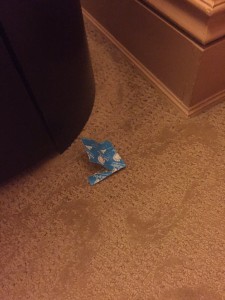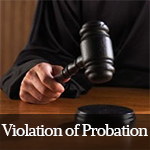
Strong Circumstantial Evidence
What is Circumstantial Evidence
Evidence in a criminal trial can be either direct or circumstantial. Circumstantial evidence is dependent upon inference, logic and/or reasoning to reach a conclusion of fact. Direct evidence is a direct observation of fact that does not need any further thought to reach a factual conclusion. The difference between direct and circumstantial evidence is best shown by example.
Direct evidence – Witness “A” testifies that she saw her husband in bed with another woman.
Circumstantial evidence – Witness “A” testifies that she saw a three pack of condoms in her husband’s suitcase after he returned from a business trip and that there were only two condoms left.
In either instance, a reasonable person could arrive at the conclusion the husband is in a lot of trouble. Most criminal defendants try to avoid generating direct evidence. As such, criminal trials tend to have substantial amounts of circumstantial evidence.
Other general examples of circumstantial evidence include forensic evidence. A fingerprint at a crime scene can be very damaging evidence. DNA evidence in rape cases and murder cases. Odontological evidence was important in the trial of Ted Bundy. Odontological evidence has proven to be reliable in identifying dead bodies.
Use of Circumstantial Evidence
There is a widespread misconception in the general public that circumstantial evidence is somehow weaker than or less than direct evidence. This can actually work to the advantage of the defense when the State’s case is based entirely on or mostly on circumstantial evidence. Make no mistake about it, people can and do get convicted based on circumstantial evidence alone.
Due to this widespread misconception, a clear and concise jury instruction on circumstantial evidence tends to favor the prosecution. An example of a well drafted jury instruction on circumstantial evidence is found in North Carolina Pattern Jury Instruction 104.05 which states:
“The law makes no distinction between the weight to be given to either direct or circumstantial evidence. Nor is a greater degree of certainty required of circumstantial evidence than of direct evidence. You should weight all of the evidence in the case. After weighing all of the evidence, if you are not convinced of the guilt of the defendant beyond a reasonable doubt, you must find the defendant not guilty.”
This jury instruction is typically favorable to the prosecution because it brings the issue of circumstantial evidence to the attention of the jury and specifically instructs the jury that circumstantial evidence is no different than direct when it comes to reaching a verdict. It is my experience that most jurors are not comfortable convicting an individual based solely on circumstantial evidence unless the circumstantial evidence is overwhelming. Without the jury instruction on circumstantial evidence, jurors tend to give it less weight which typically works to the benefit of the defendant.
Florida Jury Instruction on Circumstantial Evidence
The Florida Supreme Court eliminated the circumstantial evidence jury instruction in 1981. The reason that the Florida Supreme Court eliminated the jury instruction on circumstantial evidence was because it suggested that the law treats circumstantial evidence differently than direct evidence. In order to justify the elimination of jury instruction on circumstantial evidence, The Florida Supreme Court cited to Holland v. United States, 348 U.S. 121, 75 S. Ct. 127, 99 L. Ed. 150 (1954). In Holland, the United States Supreme Court stated:
“Circumstantial evidence in this respect is intrinsically no different from testimonial evidence. Admittedly, circumstantial evidence may in some cases point to a wholly incorrect result. Yet this is equally true of testimonial evidence. In both instances, a jury is asked to weigh the chances that the evidence correctly points to guilt against the possibility of inaccuracy or ambiguous inference. In both the jury must use its experience with people and events in weighing the probabilities. “
Circumstantial Evidence in Criminal Trials
Circumstantial evidence is still evidence. It is treated no differently than direct evidence. A jury is required to consider all admissible evidence when deliberating. The amount of weight that the jury gives to each piece of evidence is for the jury to decide. The law does not require a jury to disregard or give less weight to circumstantial evidence. In fact, quite frequently, the circumstantial evidence in a case can be more convincing than the direct evidence.
Ft. Lauderdale criminal attorney, Michael Dye, has extensive experience handling cases involving complex forensic evidence including. For more information concerning your specific situation, please contact us at:
The Law Offices of Michael A. Dye, PA, 1 East Broward Boulevard #700, Fort Lauderdale, FL 33301 (954)990-0525


